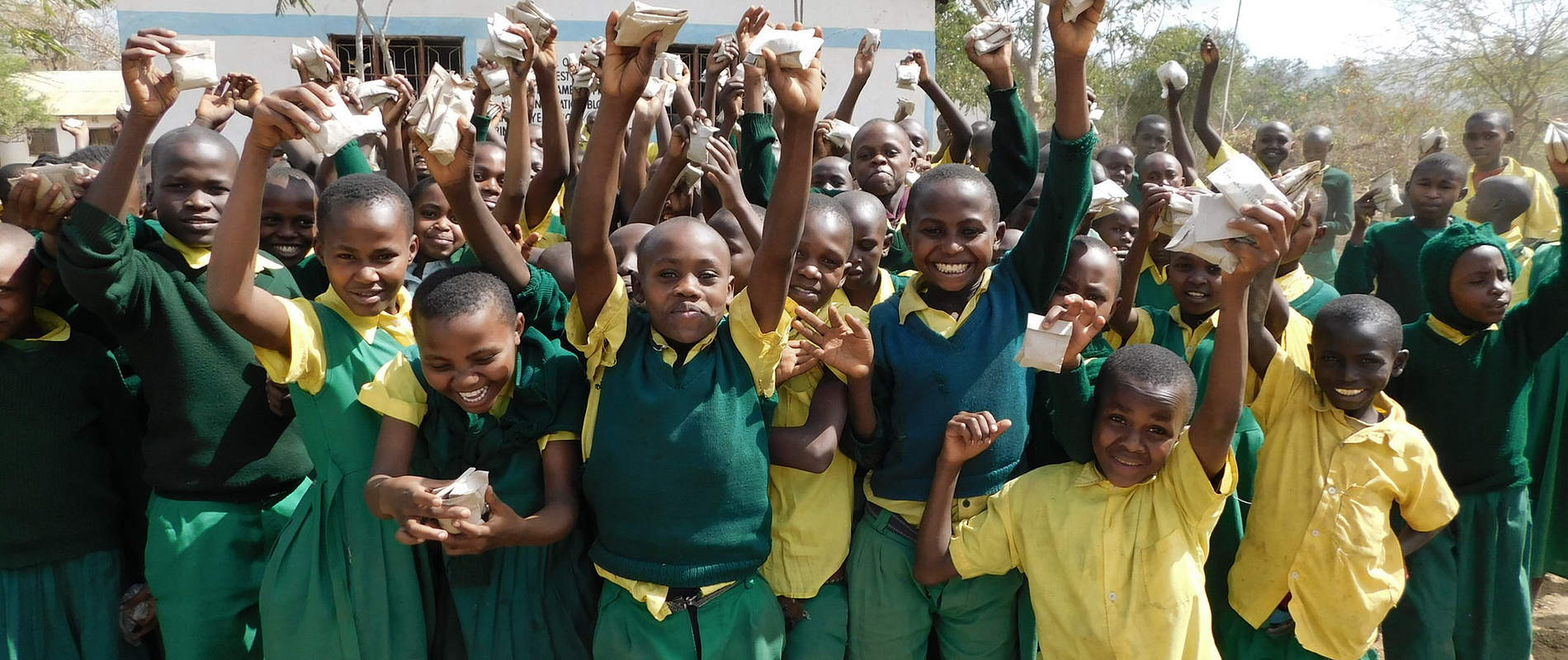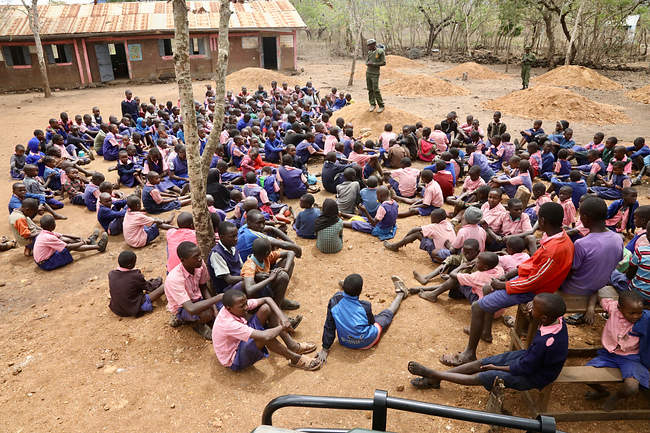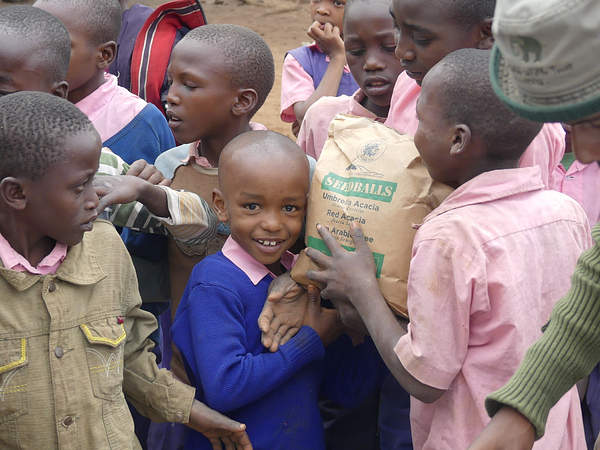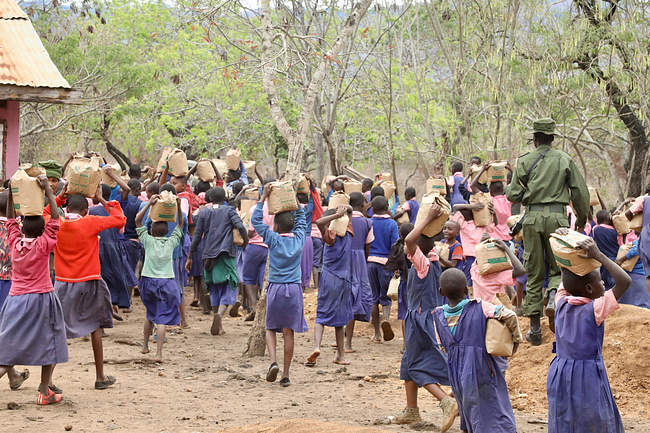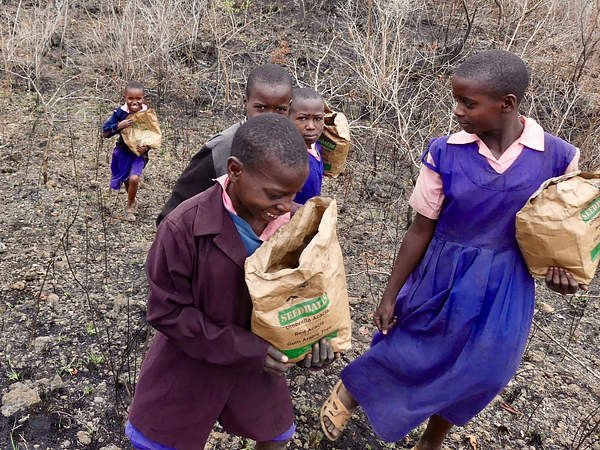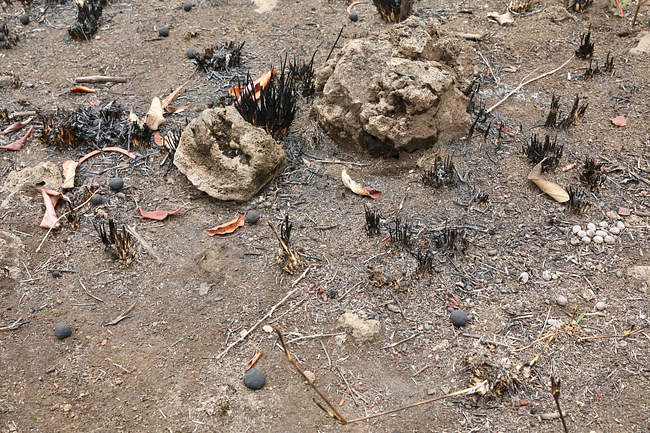In October 2018, the DSWT launched a new project aimed at inspiring school children to start planting trees. The two-pronged approach involved a large-scale seed-balling initiative in Chyulu Hills National Park (CHNP) and a tree planting competition involving 731 school children from 4 different schools also bordering CHNP.

Just a few weeks prior, a large wild fire caught on the edges of Kikunduku Primary School. Fortunately, the school was spared, however, a large area of the bordering Park was burnt. This presented us with the perfect opportunity to involve the students in a reseeding effort to help speedup the reforestation process and educate them on the importance of forests and their protection.
On 25th October 2018, with approximately 450,000 seed balls purchased from Seed Balls Kenya, over 300 students participated in the largest seed-balling effort in Kenya to date. The seed balls, coated in a thick layer of protective char dust, consisted of a mix of 4 different locally indigenous acacia species. This coating helps protect the seeds from predation and provides a small amount of nutrients to give the seeds within a ‘jump-start’ as soon as adequate rainfall triggers the germination process. Not all of the seeds will become trees, but even if only 5% survive, this will equate to over 20,000 trees, planted in the space of one hour. And 10 years from now, the students will be able to gaze across the fence from their old school and point proudly at the forest they created.
In addition to the seed balling, 3 other schools were involved, along with Kikunduku, in a separate tree planting competition. The DSWT provided 2.7 million seeds of 5 different dry land species that were handed out to 731 students to take home and plant on their farms. We will monitor their progress for a year at which point the winner and runner up from each school will receive a cash prize. The school with the highest average number of surviving trees per student will also receive a cash donation to be used toward a conservation-related project.
As this is the first time this concept has been trialled, we are uncertain of the outcome. However, if even 1 in 10 children actively participates in the competition and manages to turn even 1 in 10 of their seeds into a 1-year-old tree, we will have succeeded in creating nearly 30,000 trees (at less than half the cost of our existing DSWT nursery grown saplings). The trees will eventually provide forage for livestock and bees, wood and charcoal fuel (without depending on protected areas), shade and erosion control to name just a few benefits. More importantly, the exercise will hopefully inspire a new generation of tree planters.

The competition was received with a huge amount of excitement from the students, and their teachers, who were adamant that they would not be bettered by their neighbouring schools.
This specific project has been made possible by the sale of carbon credits by the Chyulu Hills Conservation Trust, which is a partnership between the DSWT and several other stakeholders in the Chyulu Hills, committed to protecting this incredible ecosystem.
